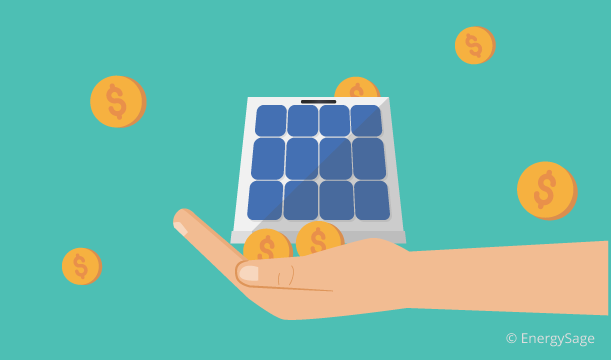Are “Free Solar Panels” Really Free? – EnergySage Blog
You can’t get free solar panels from the government–but the government does offer many great incentives to make them more affordable. Most government incentives, like the Federal Solar Investment Tax Credit (ITC), go to the owner of the solar panel system. The main takeaway when considering a “no-cost” solar program or PPA is that you don’t own the solar panel system on your roof—the installer does.
Here are some of the best solar incentives the government offers right now:
Solar Investment Tax Credit
If you’ve been on the fence about switching to solar energy, the ITC (the best solar incentive) may seal the deal. As of 2024, this federal incentive allows you to claim 30% of your equipment and installation costs as a credit toward your federal tax bill. The tax credit value applies to any systems installed and operating before December 31, 2032.
As we’ve mentioned, if you choose a “no-cost” solar program or PPA, your installer will get this credit instead of you. For example, if the system on your roof costs $10,000, the ITC would award $3,000 to the system owner. Because the installer would technically own the system, they’d receive that money. You’d miss out on one of the key financial benefits of investing in renewable energy.
SRECs and performance-based incentives
Two other programs include Solar Renewable Energy Credits (SRECs) and performance-based incentives. Some states have solar carve-outs, which mandate that a set amount of electricity generation come solar specifically. In these states, SREC markets facilitate the sale of solar certificates. You’ll earn one SREC for every megawatt-hour (MWh) your system generates. An aggregator or broker (like SRECTrade or SolSystems) will help you sell your SRECs in exchange for cash.
Performance-based incentives are rewards for producing a certain amount of solar energy. For example, if you’re eligible for performance-based incentives, your utility would pay you to produce a set quantity of electricity from your solar system, whether you use it or send it back to the grid.
State and local incentives
Many states offer incentive programs like tax credits, but they vary from state to state. Depending on where you live, you may also be able to take advantage of state net metering programs in which your utility company compensates you for excess kilowatt-hours (kWh) of electricity you generate and send to the grid. Some local cities and counties also offer direct rebates to help with the upfront costs of solar panel installations.


